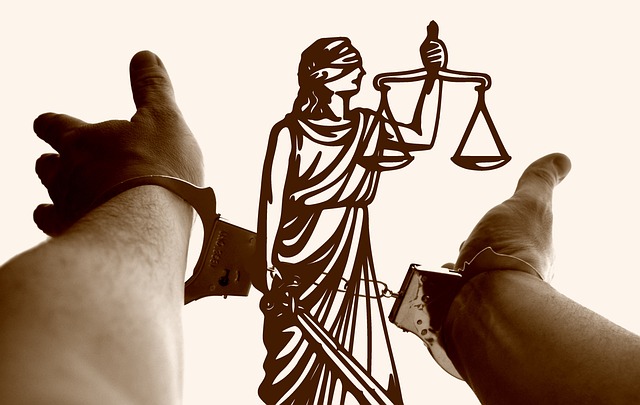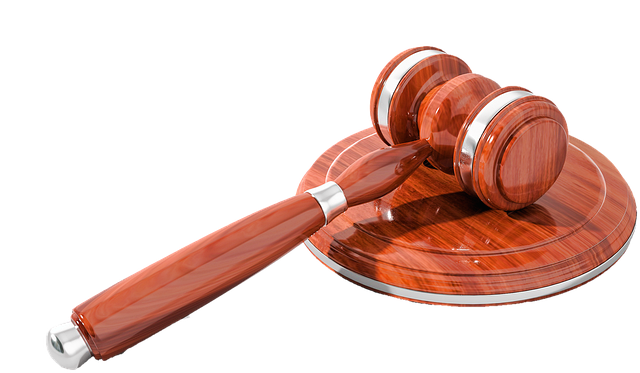Whistleblower Protection Laws (WPL) empower individuals to expose illegal activities within organizations, offering a legal shield against retaliation. To appeal a criminal case involving whistleblowing, establish eligibility under WPL by proving genuine concerns about harmful activities and adhering to proper reporting procedures. Seek specialized legal counsel for guidance through complex processes and safeguarding your rights. In appealing a criminal case, master the art of arguing trial errors and presenting compelling new evidence. Strategically document whistleblowing activities and consult experienced attorneys for robust case evaluation, enhanced likelihood of success, and protection throughout post-appeal actions.
“Whistleblower Protection Lawsuits: Navigating Justice for Brave Individuals Exposing Wrongdoing
Many courageous individuals take on significant personal risks to expose corporate or government misconduct. Understanding whistleblower protection laws is pivotal to ensuring these heroes have a legal safety net. This comprehensive guide explores the intricacies of whistleblower lawsuits, covering everything from recognizing your rights and initiating legal action to navigating complex appeals processes in criminal cases. Learn the key elements for success and strategies to overcome common legal hurdles.”
- Understanding Whistleblower Protection Laws: Rights and Eligibility
- The Process of Filing a Whistleblower Protection Lawsuit
- Key Elements Required for a Successful Appeal in Criminal Cases
- Navigating Legal Hurdles: Common Challenges and Strategies
- Post-Appeal Actions: What Happens After Your Case is Decided?
Understanding Whistleblower Protection Laws: Rights and Eligibility

Whistleblower Protection Laws (WPL) are designed to safeguard individuals who expose illegal or unethical activities within their respective businesses or organizations. Understanding these laws is crucial, especially for those considering coming forward with information that could lead to significant changes or legal repercussions. WPLs offer a range of rights and protections to whistleblowers, ensuring they can voice concerns without fear of retaliation.
To file an appeal in a criminal case involving whistleblowing, individuals must first ensure their eligibility under the relevant WPL. This typically involves demonstrating that they had legitimate concerns about activities that may harm the public interest, and that they followed proper channels to report these issues. The process often involves engaging with regulatory bodies or law enforcement agencies during all stages of the investigative and enforcement process. In high-stakes cases, legal counsel specializing in whistleblower protection can be invaluable, guiding individuals through complex procedures and ensuring their rights are protected throughout.
The Process of Filing a Whistleblower Protection Lawsuit

When considering how to file an appeal in a criminal case involving white collar and economic crimes, understanding the process of a whistleblower protection lawsuit is paramount. This route is designed to protect individuals who expose illegal activities within their organizations from retaliation, a crucial aspect of general criminal defense. The first step involves gathering compelling evidence and documenting the alleged misconduct. This may include internal reports, communications, and any personal experiences that substantiate the claim.
Once prepared, the whistleblower must file a complaint with the appropriate authorities or government agencies tasked with investigating such matters. If the initial filing results in no actionable response or unfavorable outcomes, it becomes feasible to pursue legal recourse via a lawsuit. This process entails hiring a qualified attorney specializing in whistleblower protection and navigating complex legal procedures. By achieving extraordinary results through this avenue, whistleblowers can not only seek justice but also deter future misconduct within their organizations.
Key Elements Required for a Successful Appeal in Criminal Cases

When considering how to file an appeal in a criminal case, understanding the key elements required for a successful appeal is essential. Appeals are complex legal processes, and winning one hinges on several crucial factors. Firstly, the appellant must demonstrate that there was an error during the initial trial, such as procedural mistakes or errors in law, which led to an unfair outcome. This often involves presenting new evidence or arguing that certain evidence was mishandled.
Additionally, the appeal should highlight how this error significantly impacted the case’s verdict, potentially leading to an inaccurate judgment. In high-stakes cases, where the outcomes can sway public opinion and affect political and philanthropic communities, a well-structured argument is vital. Effective use of legal precedents and case law can strengthen the appeal, especially if it challenges or interprets existing laws in novel ways. Remember, successful appeals require meticulous preparation and a deep understanding of both the law and the facts of the case.
Navigating Legal Hurdles: Common Challenges and Strategies

Navigating Legal Hurdles presents a complex landscape for those initiating Whistleblower Protection Lawsuits. Common challenges include establishing valid claims under protection laws, which often require proving intent to expose wrongdoing and a connection to public interest. The process can be particularly daunting for corporate and individual clients alike, who may face strategic obstacles in presenting their cases effectively.
Strategic approaches to surmount these hurdles involve meticulous documentation of whistleblowing activities, including the chain of events leading up to the disclosure of illegal or unethical practices. Consulting with experienced legal counsel well-versed in general criminal defense and whistleblower legislation is crucial. This ensures proper case evaluation, evidence gathering, and formulation of arguments tailored to the specific laws governing whistleblower protections, ultimately increasing the likelihood of a positive outcome, even when appealing against How to File an Appeal in Criminal Case decisions.
Post-Appeal Actions: What Happens After Your Case is Decided?

After your whistleblower protection lawsuit is decided at the appellate level, the process doesn’t necessarily end there. Depending on the outcome, several post-appeal actions may be required or available to you. If the court rules in your favor, ensuring you’ve protected your rights as a whistleblower, the next step could involve enforcement of the ruling and any damages awarded. This might include seeking compensation for lost wages, reinstatement at your former place of employment, or both.
In cases where high-stakes are involved, especially within the philanthropic and political communities, navigating these post-appeal actions is crucial. If the court rules against you, there may be opportunities to request a rehearing or appeal further, though this typically requires a strong legal argument and a thorough review of the original decision. Consulting with a general criminal defense attorney specializing in whistleblower cases can help guide you through these complex processes, ensuring your rights are protected throughout.
Whistleblower protection lawsuits are a crucial tool for individuals who expose illegal activities within their organizations. By understanding your rights under whistleblower protection laws, navigating the legal process effectively, and learning from common challenges, you can play a vital role in upholding justice. If you’re considering an appeal in a criminal case, familiarizing yourself with the key elements required can significantly enhance your chances of success. Remember that, while the path may be complex, it’s essential to persevere when safeguarding the public interest.






